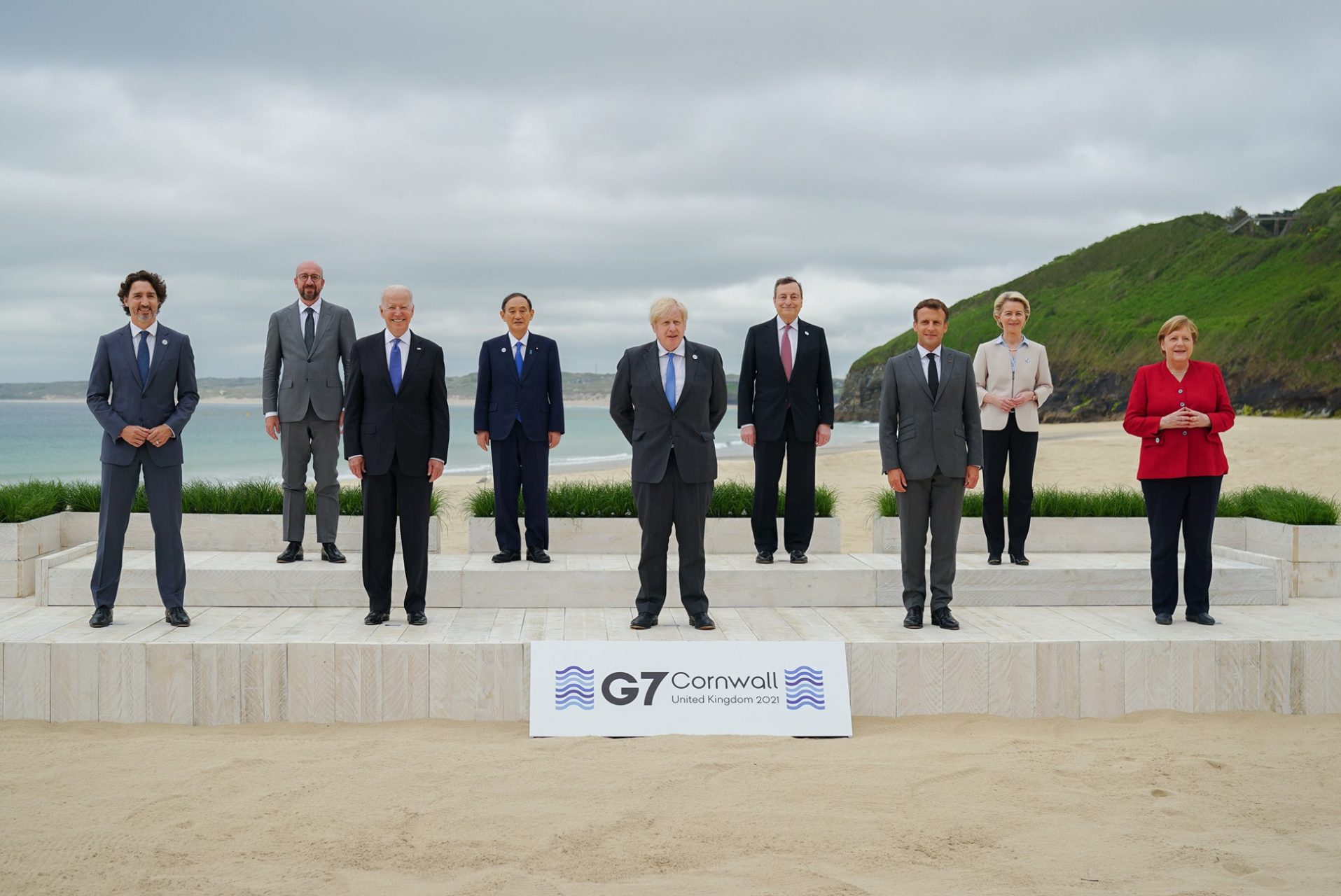
Professor Richard Whitman looks beyond the glossy photocalls to discern the real relevance of the meeting.
Obviously Professor Richard Whitman, was watching the weekend meeting of the G7 with interest. He summarised the proceedings for us.
‘The G7 Summit was a major re-boot of international summitry. This meeting of the grouping of the largest ‘Western’ nations (or more accurately the largest liberal democracies) was intended to demonstrate that these countries have not lost their collective capacity to provide leadership on major international issues.
‘G7 was also a key fixture for President Biden to demonstrate the difference of his approach from his predecessor by demonstrating a renewed commitment to its most important allies and that the U.S. has returned to a role of international leadership.
‘The Summit was focused heavily on the Covid-19 pandemic and how to address its on-going impacts on global public health and on the global economy. The collective commitments by the participants to share vaccine doses internationally were one of the most significant outcomes but criticised as an inadequate by health and development NGOs.
‘The collective commitments on climate were less eye-catching than had been trailed in advance of the Summit. With the expected references to a commitment to de-carbonise power generation before the middle of the century omitted. The UK Government had been keen on a significant commitment as the stepping stone to the COP26 UN Climate Conference it will host in the autumn. With the Conference only a few months away any gap between G7 commitments and actions for climate change will be more difficult to hide.
‘A major theme running through the meeting was how to respond to address China’s growing global influence. Both in providing alternative international leadership by promoting democracy over authoritarianism but also committing financial resources collectively to provide an alternative to China’s support for building infrastructure across the globe.
‘The G7 Summit provided Prime Minister Johnson an opportunity to demonstrate that the UK retains a role as an internally significant diplomatic player following the domestic political turbulence of recent years. However, he could not entirely escape the recent past as the issue of the Northern Ireland protocol was an issue raised by other European leaders. This distracted from the Government’s intended message that the Summit was the UK demonstrating its leadership on the most pressing international issues.’
‘The G7 has generally had a chequered track record in following through on its commitment, and not least because the leadership passes from one country to another each year. Yet, in this instance global vaccination for Covid-19 is such a headline news item that the commitments (and pressure to maintain them) will be more visible than normal.’




